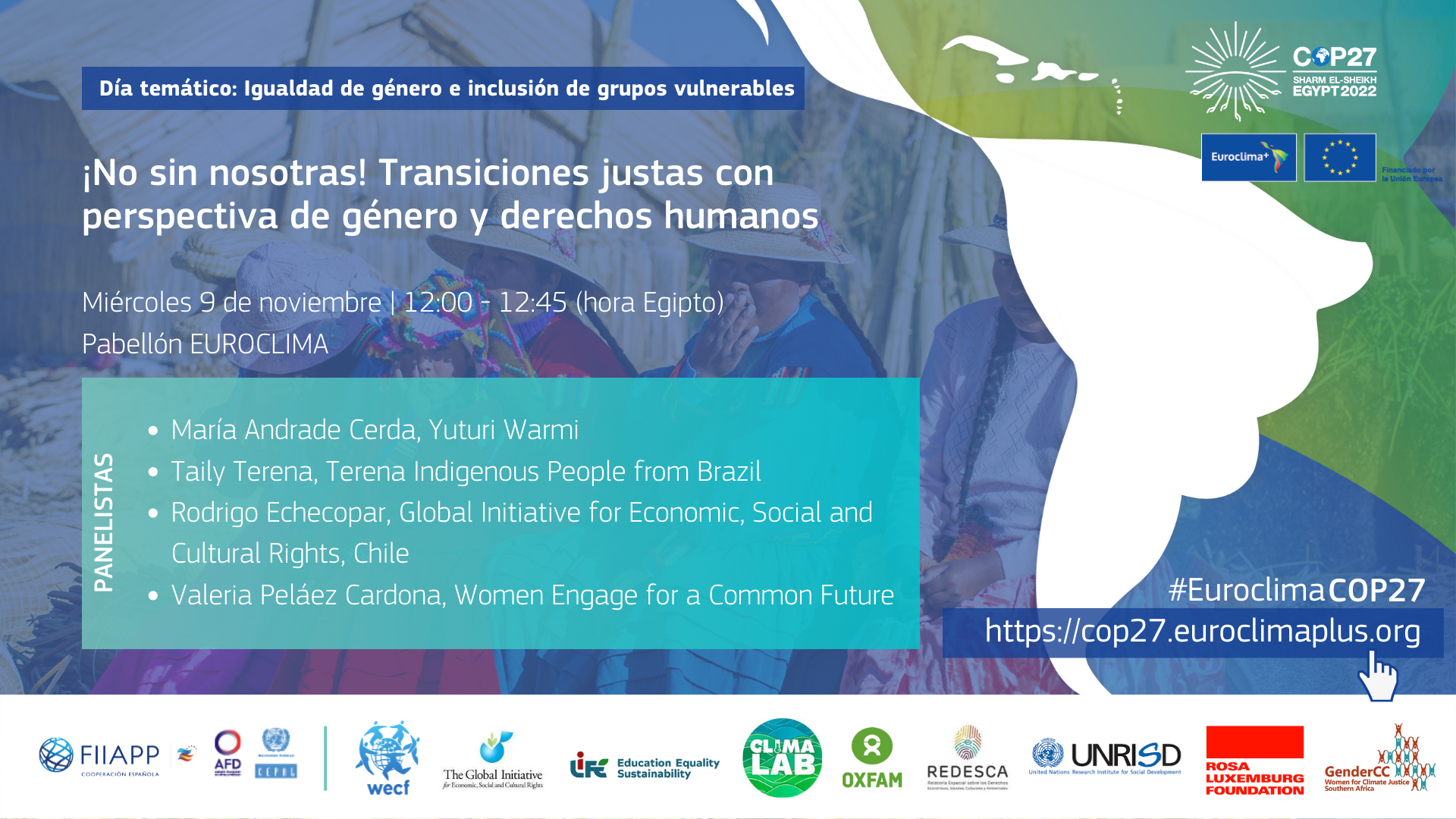
GI-ESCR's Priorities and Participation at CoP27
GI-ESCR's Priorities and Participation at CoP27
The climate emergency poses an existential threat to the exercise of all internationally recognised human rights. Following the recent reports of the Intergovernmental Panel on Climate Change (IPCC), the window of opportunity for decisive action and decarbonisation of our economies is rapidly closing. It is now clear that the negative impacts of climate emergency are not a future problem, but a reality faced by millions of people around the world. The 27th Conference of the Parties to the UNFCCC (COP 27) will take place in Sharm El-Sheikh from 6 to 18 November and will bring together a wide range of stakeholders, including member states, climate activists, international organisations, businesses, and representatives of indigenous and other marginalised groups, to discuss how we can move forward in addressing the climate breakdown.
This year's CoP27 once again provides a critical opportunity to drive long overdue change and the enforcement of ambitious commitments. It is time to take the climate emergency seriously, to put human rights and gender equality at the centre of climate mitigation and adaptation strategies, and to mobilise the resources necessary to address the inevitable loss and damage. The scope, speed, and scale of the emergency do not allow for further hesitation to achieve a rights-based transition to a just and sustainable future.
To contribute to this effort, Rodrigo Echecopar, Director of Economic and Climate Justice at the Global Initiative for Economic, Social and Cultural Rights (GI-ESCR), will participate in COP27 with two focal points
1. Improving knowledge and awareness of the importance of tax policy in addressing loss and damage
As the climate collapse intensifies, the urgent and unprecedented mobilisation of resources is needed to effectively mitigate and adapt to the climate emergency and respond to the loss and damage that will inevitably be caused by the current trajectory of greenhouse gas emissions. In this sense, progressive tax policies can and should be seen as an important financial tool to ensure the flow of resources to address losses and damages that disproportionately affect the most marginalised people in countries of the Global South.
To contribute to discussions on climate finance, we will engage at CoP27 to initiate discussion on how global tax reform could provide effective responses to loss and damage by publishing a policy brief with key policy recommendations and meeting with new and old partners and relevant member States as a mean to support, inform, and influence work on rights-based climate finance
2. Fostering a broader understanding of the concept of just transition based on human rights and gender equality principles
To address interlocking inequalities and environmental crises, transformative approaches must be developed that simultaneously pursue social and climate goals and make progress on both fronts. In this sense, just transitions provide a framework that has the potential to drive the urgent structural socio-economic changes that are critical to ensure rapid transformation towards new economic models that provide better access to human rights within planetary boundaries.
In this spirit, GI-ESCR seeks to help expand the traditional understanding of just transitions as embodied in the Paris Agreement, based mostly on labour concerns. We will seek to develop a broader set of proposals based on the international human rights framework that not only considers the need to take into account the impact on workers affected by the transition to renewable energies but address the socio-environmental transformation of our economies in other major fields, such as energy, transport, food, housing, health, education, culture, among other, with a human rights and gender equality perspective.
At CoP27, we joined key partners including Women Engage for the Common Future (WECF), Life, the United Nations Research Institute for Social Development (UNRISD), the Office of the Special Rapporteur on Economic, Social, Cultural and Environmental Rights (REDESCA), the Rosa Luxemburg Foundation, ClimaLab, Gender CC and Oxfam to hold “¡No sin nosotras! Transiciones justas con perspectiva de género y derechos humanos”, a side event at the Euroclima Pavilion in the Blue Zone to present our new briefing paper ”Setting a Roadmap for a Feminist Green Transformation: Harnessing Economic, Social, Cultural and Environmental Rights to Guide a Gender-Equitable Transition”. The event sparked a conversation between climate and human rights activists to highlight the key elements of a gender-just transition to sustainability.


Watch the pictures of the event here.
For any more information regarding GI-ESCR’s work or to get in touch with us, feel free to email
Stay tuned for more information on GI-ESCR 's activities and updates on COP27



